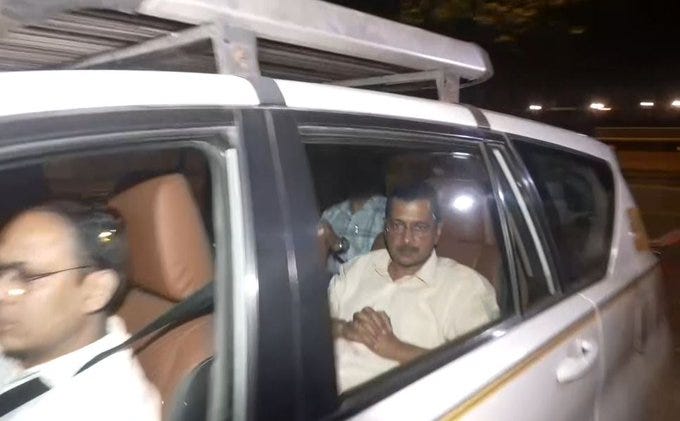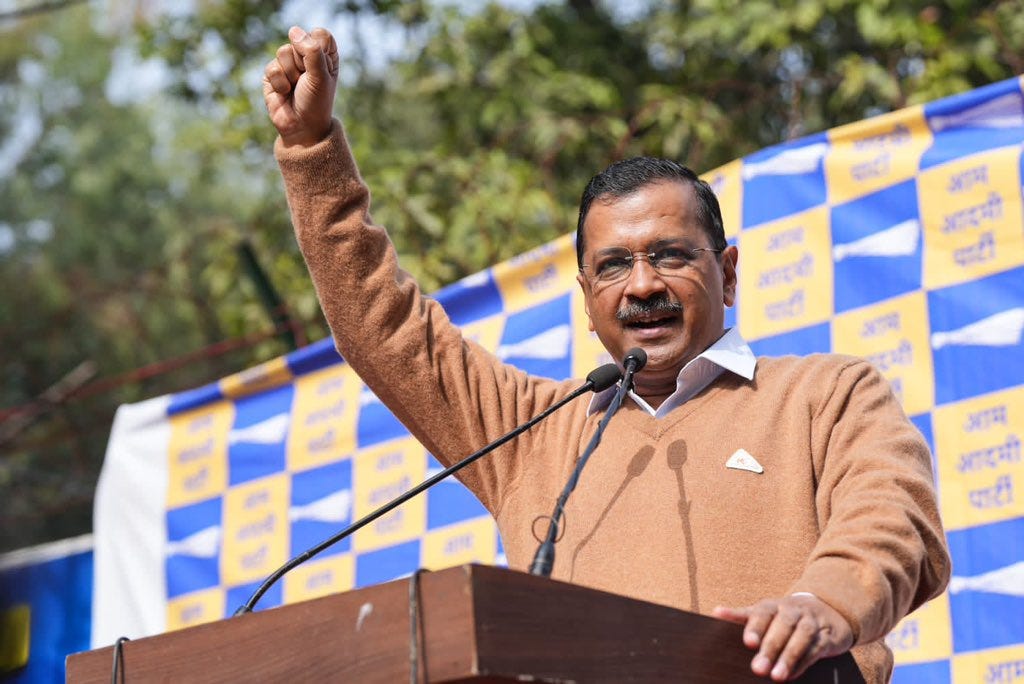Arvind Kejriwal Arrested by ED in Delhi Liquor Policy Case: What Next?
An analysis from a legal perspective, sans political bias.
Arrest followed Delhi High Court Hearing
Barely hours after the Delhi High Court declined to grant the relief of “no coercive measures”, the Enforcement Directorate on Thursday evening (21st March) arrested the Delhi Chief Minister, Arvind Kejriwal in connection with the Delhi liquor scam. He was taken into custody in his official residence and has been taken to the ED headquarters, where he will be kept overnight, barring any specific orders by the Supreme Court of India. The central probe agency effected the arrest following Kejriwal's non-compliance with nine consecutive summonses, each requiring his personal appearance before the agency.
Legal Procedures and Immediate Actions
In alignment with constitutional mandate, Kejriwal must be presented before a competent magistrate or judge within 24 hours following his arrest. Subsequent to this presentation, the Court may decide to either place him in judicial custody or extend his remand in ED custody for additional days. Media outlets have reported that Kejriwal's legal team has sought an urgent hearing from the Supreme Court on the very night of Thursday. However, up to the publication of this article, the Court's registry had not confirmed any such hearing.
Challenge to the Legality of Arrest in Supreme Court
Kejriwal's most recent petition to the Supreme Court addresses the legality of his arrest rather than seeking bail, which is typically pursued through the special Prevention of Money Laundering Act (PMLA) trial court. This petition reportedly contends that the arrest did not adhere to the requisite procedural provisions, thereby violating Article 21 of the Indian Constitution. Article 21 safeguards an individual's right to life and personal liberty, stipulating that no one may be deprived of these rights except through established legal procedure. Given that this is a fundamental right, any person claiming its infringement has the remedy to directly approach the Supreme Court under Article 32, which provides the right to constitutional remedies.
Legal Hurdles and the Burden of Proof
The petition's scope challenging the arrest's legality is notably narrow, placing the burden of proof squarely on Kejriwal to show non-compliance with mandatory arrest procedures by the Enforcement Directorate (ED), especially the prejudice caused to him thereby. An argument might be made that Kejriwal was not properly informed of the arrest grounds either during the arrest or immediately following it, or that the grounds were vague. This Supreme Court petition does not obligate the ED to present Kejriwal before the apex court unless specifically ordered. Typically, the ED would present him before the relevant special court to request his remand for a few additional days, irrespective of the Supreme Court hearing.
Bail Considerations and Legal Strategy
Kejriwal's legal team has the option to file a regular bail application with the special Prevention of Money Laundering Act (PMLA) court. Nevertheless, it's improbable they will pursue this route while their Supreme Court petition challenging the arrest's legality is still under consideration. Bail provisions under the PMLA, 2002, are notably stringent. A Court, be it a trial court, the High Court, or the Supreme Court of India, must be satisfied of two primary factors: firstly, that the accused did not prima facie commit the alleged offence, and secondly, that the accused will not commit such an offence in the future. These requirements are in addition to standard bail conditions, which include concerns over the accused absconding, interfering with the legal process, intimidating witnesses, or tampering with evidence.
Challenges in Meeting Bail Conditions
The stringent conditions for bail under the PMLA, 2002, present significant challenges for any judge to record satisfaction, particularly in the initial phases of an investigation, that the accused did not commit the offence of money laundering prima facie. This stringent criterion is the core reason bail applications of former Delhi Ministers such as Manish Sisodia and Satyender Jain have been consistently denied up to the level of the Supreme Court. The judicial system's high bar for satisfaction in these cases reflects the rigorous standards set by the PMLA for granting bail in offences of a serious nature.
Potential Developments and Confrontations
As proceedings continue both in the Supreme Court and the trial court, it is highly probable that Arvind Kejriwal, currently under ED custody, will face a confrontation with Ms. K. Kavita, daughter of the former Telangana Chief Minister, K. Chandrasekhar Rao. Ms. Kavita has also been detained by the ED in connection with the Delhi liquor scam and has been remanded to their custody until 23rd March 2024. Any incriminating testimony from her could significantly complicate Kejriwal's legal situation. This potential encounter underlines the complexities and interconnectedness of the case's various elements and stakeholders, within the framework of the due process of law.
Political Consequences of Continued Detention
Should Arvind Kejriwal remain detained without legal reprieve in the next 24 hours, it becomes almost certain that he would need to resign from his position as the Chief Minister of Delhi. In the event of his failure to resign, the Lieutenant Governor of Delhi would be at liberty to dismiss him. This would necessitate the Aam Aadmi Party's legislative wing in the Delhi Vidhan Sabha to elect a new leader, who would then be appointed as the new Chief Minister, accompanied by the formation of a new council of ministers. This scenario underscores the significant political ramifications of Kejriwal's legal troubles, not only for him personally but for the governance of Delhi as well.
Hypothetical Outcomes and Broader Implications
This scenario remains hypothetical, contingent on the possibility that Mr. Kejriwal is not granted release by either the Supreme Court of India or the trial court by Friday. Political reactions— already out— are aligned with established partisan perspectives, yet the arrest undeniably stands to influence the Lok Sabha elections significantly, though it is difficult to predict in what manner. Furthermore, this incident is likely to catalyse a critical debate over the retention of stringent and potentially exploitable legal provisions within statutes like the PMLA. Such laws, many opposition leaders have averred, can be misused for political or other extraneous purposes by central investigative agencies.
Very recently, a Bench of the Supreme Court headed by Justice Sanjeev Khanna has highlighted concerns about the indefinite incarceration of accused individuals through the ongoing submission of supplementary charge sheets without concluding investigations. This practice hinders the accused's ability to benefit from default bail under the criminal procedure code, while essentially delaying the trial's commencement. This complex interplay between legal proceedings and political dynamics underscores the nuanced challenges at the intersection of law, governance, and civil liberties.
Summing Up: Perspective and Objective
The primary aim of this article is not to delve into the merits of the case against Arvind Kejriwal but to offer a comprehensive overview of the legal framework, the ensuing procedures, and the potential political repercussions. This incident is a developing story with significant public interest and is expected to stay in the headlines for the coming days, if not weeks. By providing a balanced view that encompasses both the legal and political landscapes, we seek to inform readers and stimulate thoughtful discourse on the implications of such high-profile legal actions within the democratic framework of India.
Stay tune.







